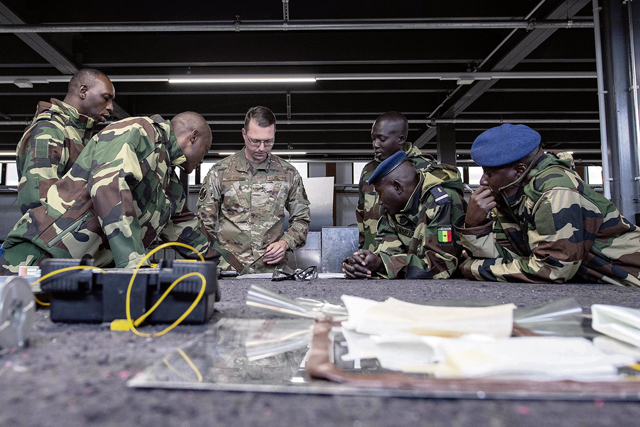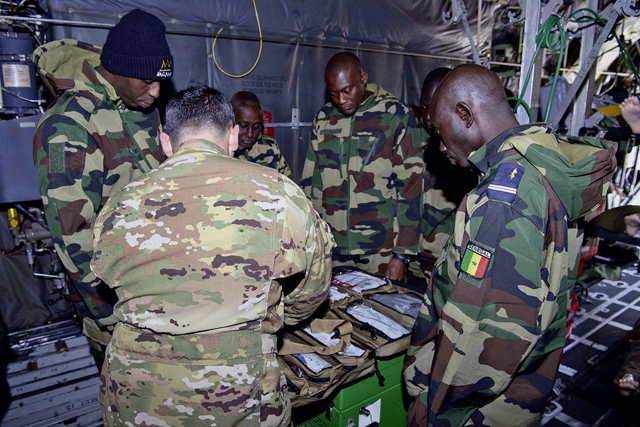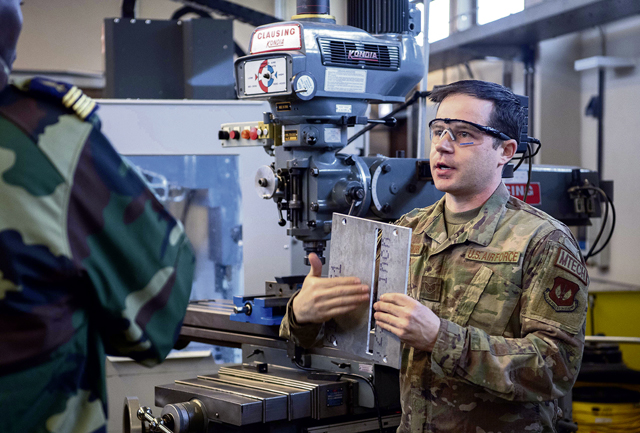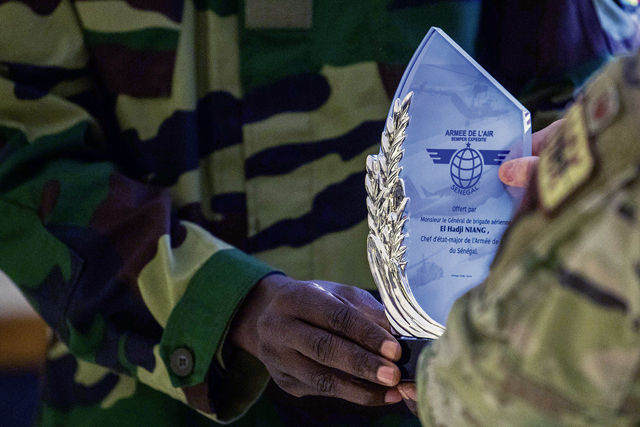
The 86th Maintenance Squadron and 435th Contingency Response Support Squadron hosted five representatives from the Senegalese air force April 23-26.
The visit was held to give the Senegalese airmen insight into the 86th MXS mission and show how Ramstein AB as a whole operates. The Senegalese air force hopes to take the information learned on this tour and apply it to its own systems, furthering the quality of day-to-day operations.
“We know the U.S. Air Force has huge experience when it comes to air operations,” said Senegalese air force Col. Babacar Thiam, chief of logistics department. “We came here to see maintenance and take some good practices that we can apply back home, right away.”

The Senegalese airmen were shown around various buildings showcasing U.S. Airmen at work, demonstrating operations and equipment used on a daily basis at the quality assurance, aerospace ground equipment, and non-destructive inspection shops. The visit also included a tour around the 721st Aerial Port Squadron and Ramstein Passenger Terminal.
“I have a ton of experience with 15 years on the job,” said U.S. Air Force Tech. Sgt. Adam Reicks, 86th MXS aircraft structural maintenance noncommissioned officer in charge. “Anytime anyone is willing to listen, I am more than willing to share. They were very interested in our machines and the way we use them to get things done.”
The Senegalese air force recently built a new training facility, where new airmen train on the various types of maintenance, tools and aircraft used in their military.

“Instead of starting from scratch and trying to invent another way of doing things, it’s easier to follow those who have a working system,” said Thiam. “Having an air force is very expensive and this helps us save money by learning directly from people who know. It is very beneficial.”
U.S. Air Force Staff Sgt. Austin Doll, 435th CRSS airfield management air advisor, said meetings like these open the door for further cooperation in prospective operations. In the future, Doll hopes the Senegalese and U.S. Air Forces can rely on each other by building the relationship now through events like these.
Not only do immersion tours build strong relationships for future operations, they provide an opportunity for U.S. Allies and partners to learn new ways of conducting operations. In turn, this helps Airmen highlight different processes and share their own experiences.



